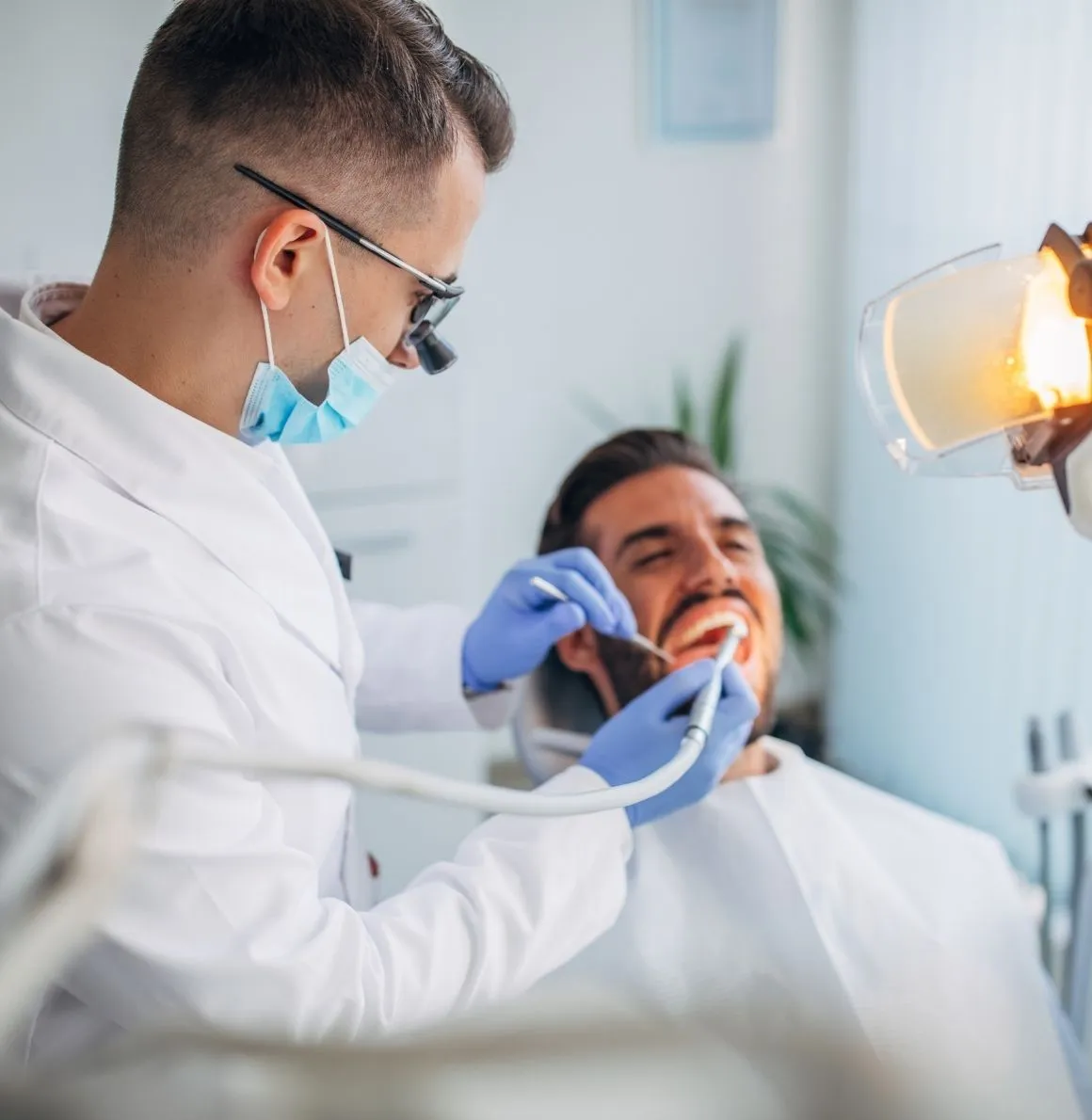HOME | FAMILY DENTISTRY
TMJ
Temporomandibular joint dysfunction (TMD) is a group of disorders that result from problems with the jaw, jaw joint, or facial muscles involved in jaw movement.

The temporomandibular joint (TMJ) is the joint located in front of the ear where the skull and lower jaw meet that enables the jaw to move and function normally. It is one of the body’s most frequently used joints, as talking, yawning, chewing and swallowing all involve the TMJ. For it to function properly, the muscles, ligaments, and bones that allow it to move must be working properly – conditions that prevent this may cause TMD. If you are experiencing symptoms of TMD, Dutch Neck Dental in East Windsor, NJ offers treatments that can help.
Types Of Temporomandibular Joint Disorder
TMDs are usually categorized in one of three ways.
Muscle Disorders
Muscle disorders can cause pain or discomfort in the muscles surrounding the jaw, as well as the muscles of the shoulder and neck. This is the most common type of TMD.
Joint-Derangement Disorders
Joint-derangement disorders are structural conditions. They can be caused by injury, wear on the joint such as from bruxism, severe malocclusion, or the dislocation or displacement of the articular disc, which is a component of the TMJ.
Degenerative/Inflammatory Joint Disorders
Aging and overuse of the joint can cause degeneration and/or inflammation. This may be a result of osteoarthritis, rheumatoid arthritis or a perforated TMJ disc.
A patient may experience one or more of these disorders at the same time.
Causes Of Temporomandibular Joint Disorder
What causes TMD is not clear, but symptoms are believed to develop from problems with the jaw muscles or with the joint itself. TMD may be the result of many factors, including the following:
- Trauma to the head or neck
- Clenching or grinding of the teeth
- Bad “bite” or missing teeth
- Arthritis
- Malalignment of the upper and lower jaws
Stress may also play a role in developing TMD because it can lead to tightening of jaw muscles and clenching of teeth.
Symptoms Of Temporomandibular Joint Disorder
TMDs can cause discomfort and pain that is constant or intermittent, with symptoms that can include:
- Chronic pain in the face, jaw, neck and shoulders
- Chronic pain in or around the ear
- Limited ability to open the mouth wide
- Difficulty chewing
- Uncomfortable “bite”
- Swelling on one or both sides of the face
- Clicking or popping noises when opening the mouth
- Headaches and neck aches
Symptoms vary from being barely noticeable to causing seriously debilitating pain. It is also possible that the above symptoms have causes other than TMD.
Patient Testimonial
The best dentist experience I’ve had. The team is very knowledgeable while giving excellent care. I highly recommend this place!
– Chelsea
Diagnosis Of Temporomandibular Joint Disorder
In order to diagnose TMD, a physical examination, as well as the following tests, may be performed:
- Clench test
- X-rays
- CT scan or MRI scan
- Computer bite analysis
- Joint-vibration analysis
Many tests for diagnosing TMD are designed to rule out other conditions that may be causing the same symptoms.
Treatment For Temporomandibular Joint Disorder
Treatment for TMD depends on the severity of the condition, and may include:
- Stress-reduction exercises
- Muscle relaxants
- Low-level-laser therapy
- Mouth protectors to prevent teeth-grinding
- Changing diet to soft foods
- Heat or ice packs
- Avoidance of extreme jaw movements
More extensive corrective treatments include injections for pain relief. If nonsurgical treatment is unsuccessful or if there is joint damage, surgery may be needed. Types of surgery performed for TMD include:
- Arthrocentesis
- Arthroscopy
- Open joint surgery
Although TMD can be a chronic condition, it can be effectively managed with proper treatment.
Additional Resources
 5.0 Stars +200 Reviews
5.0 Stars +200 Reviews
“Dr. Goldstine and his staff demonstrate the very best of being both professional and caring. I would recommend anyone looking for a great dentist to try this office.” - C. R. (Verified Patient)
“I've been going there for 25 yrs. I have had the best dental care, ever. Never once did I consider going to another practice. All of the staff, are wonderful. Kudos to everyone.” - D. W. (Verified Patient)
“Via a referral from a friend and colleague, our family has been at the receiving end of over 40 years of extraordinary dental and hygiene care from Dr. Goldstine (father & son) and the entire Dutch Neck Dental staff. We love to smile… thank you!” - G. H. (Verified Patient)

Request Your Appointment
Exceptional Care for Every Smile

Get In Touch
Come Visit Us!
Whether you're due for a routine check-up or ready to transform your smile, we’d love to welcome you to our East Windsor office. With flexible hours, a convenient location, and a team that treats you like family, your best dental experience starts right here.
